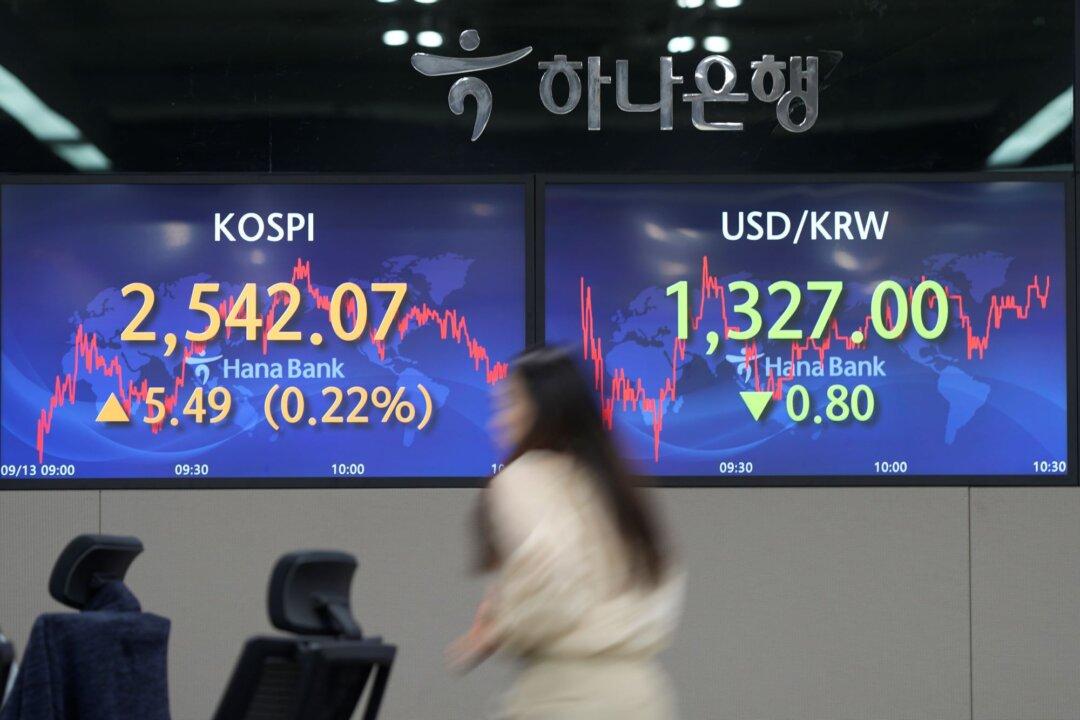Stocks fell Wednesday in Asia after a slide for technology stocks dragged Wall Street lower ahead of a key report on U.S. inflation.
Hong Kong’s Hang Seng lost 0.3 percent to 17,970.01 and the Shanghai Composite index sank 0.9 percent to 3,109.88.

Stocks fell Wednesday in Asia after a slide for technology stocks dragged Wall Street lower ahead of a key report on U.S. inflation.
Hong Kong’s Hang Seng lost 0.3 percent to 17,970.01 and the Shanghai Composite index sank 0.9 percent to 3,109.88.